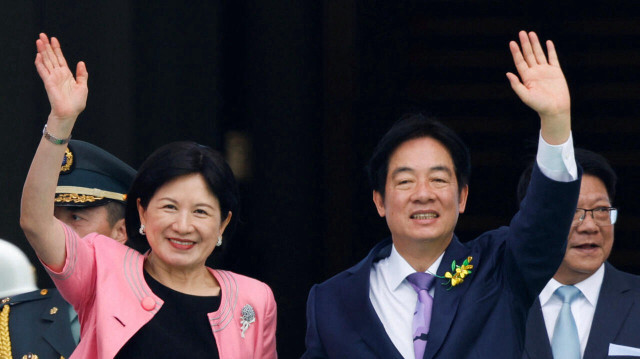
Taiwan's legislative battle has overshadowed President William Lai Ching-te's early days in office, as the legislature, known as the Legislative Yuan, pushes for amendments to bolster its powers, according to media reports.
The opposition Kuomintang (KMT) and Taiwan People's Party (TPP), which hold a legislative majority, proposed bills aimed at increasing scrutiny concerning executive agencies and officials.
Lai was sworn in Monday and heated exchanges, booing, blows and bruises had already been reported inside the legislature since last week when it was adjourned until Tuesday. Protests continued when the legislature again met.
The ruling Democratic Progressive Party (DPP) has criticized a "lack of deliberation" on the bills to stall their progress.
The proposed changes to the “Law Governing the Legislative Yuan's Power” seek to enhance lawmakers' investigative rights. The changes would allow the legislature to form investigative committees with the authority to access documents from government agencies, the military and private entities, and to summon individuals for testimony.
Officials who refuse to cooperate or provide false information during interpellation sessions could face fines from NT$20,000 ($619) to NT$200,000, or face impeachment, according to the contentious bill.
Additionally, the amendments require open ballots for appointments to key government positions, affecting the Judicial Yuan, Control Yuan, Examination Yuan and certain independent agencies.
The proposed bill would require the president to deliver an annual State of the Nation Address and personally respond to questions from lawmakers.
The reform sparked large protests in Taipei, with DPP supporters opposing further empowering the legislature where the ruling party lost its majority during elections in January.
Taiwanese amendments must pass three readings to become law. The contentious amendments have so far been passed two readings.
China considers Taiwan its “breakaway province” while the self-ruled island has insisted on its independence since 1949.
Beijing also opposes Taiwan's representation at the UN and other international organizations and demands that other countries cut diplomatic ties with Taiwan.














